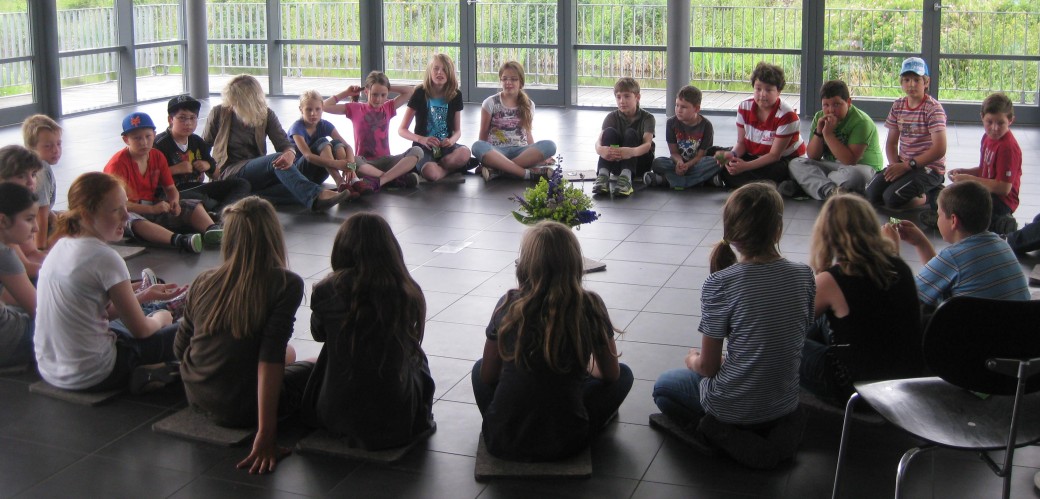

During an eventful stay the children and adolescents aged from 8 years discover the woollen cloth factory from the past which has remained almost unchanged. Guides bring the factory to life again; the old machines operate and produce once more. Museum visitors experience live how fine woollen cloth is made from loose wool.
Diverse museum education project options promote independent learning, encourage participation and independent activity: Everyone can try their skills at carding, spinning, weaving and dyeing. Experience hands-on how cloth was produced in the pre-industrial period.
The exploration of the cloth factory highlights the differences between manual production and industrial production and also underlines how much work is involved in making our clothing. The project which is designed to take 3-5 days allows sufficient time for stress-free, knowledge-oriented and enduring work. Insights into the industrial world of work are supplemented by sensual direct experience and through practical action. Self-catering activity in the museum guesthouse encourages the taking of responsibility and the further development of social competence. As a rule just one school class at a time is accepted: there is therefore plenty of space for development in groups and team work.
Carding, spinning, weaving and dyeing wool gives hands-on experience of what it was like producing cloth in the pre-industrial period. Watch, touch and determine the textile fibres and get to know the different wool processing techniques, that all conveys “a certain feel” when it comes to attitudes to things.
The use of water to produce energy and for dyeing, washing and fulling the wool/cloth in the factory including all the ecological problems related to this are the topics of this programme. In the practical part the children and adolescents act as natural scientists and familiarise themselves with life in and around the stream. Plants from the stream banks and water taken from the stream together with microorganisms are studied and determined with the help of illustrations. Selected animals can be drawn. The need for careful handling of plants and animals is conveyed. The production of steam and its use are communicated through operating model steam engines and the machine tools connected to a small transmission. Pigments obtained from plants are used for dyeing and hands-on experience in felting and fulling makes it clear how a compacted woollen product is made using water, heat and liquor. It is also possible to build a small waterwheel. At the end a “Water Museum” can be constructed in which the collected experiences and products are presented.
Tying in with the archaeological find of a motte as predecessor to the castle, various different topics are proposed based on which the pupils explore certain aspects of the Middle Ages and the period of industrialisation and compare these from their own experience. From a choice of 5 different topics (Living, working, eating/cooking, clothing, writing) they learn from specialist sources and additional information something about the life of people in the Middle Ages and to what extent living conditions changed through industrialisation. Practical exploration, trial and error, reconstruction and re-enactment in “workshops” are the main focus of this experience-oriented and motivating pre-occupation with the respective historical periods. The children document their findings in a research diary. If there is sufficient time the group findings can be presented as an exhibition.
Materials to touch and play with (memory/puzzle/play mobile) surrounding the question: what materials are our clothes made from and how and where are they produced?
Self-devised scenes, e.g. about the cloth factory just visited, are turned into a performance in black light with fluorescent yarns, fabrics and other utensils.
Re-design t-shirt, jeans and co using printing and stamping and learn more about textile production worldwide
65 € per person for a 3-day stay,
85 € per person for a 4-day stay,
105 € per person for a 5-day stay
This includes accommodation, bedding and programme.
For an additional 4.50 € per person and day it is possible to book lunch; Breakfast and evening meal each cost 2.75€.
We are happy to advise you!
Prices for other groups upon request.